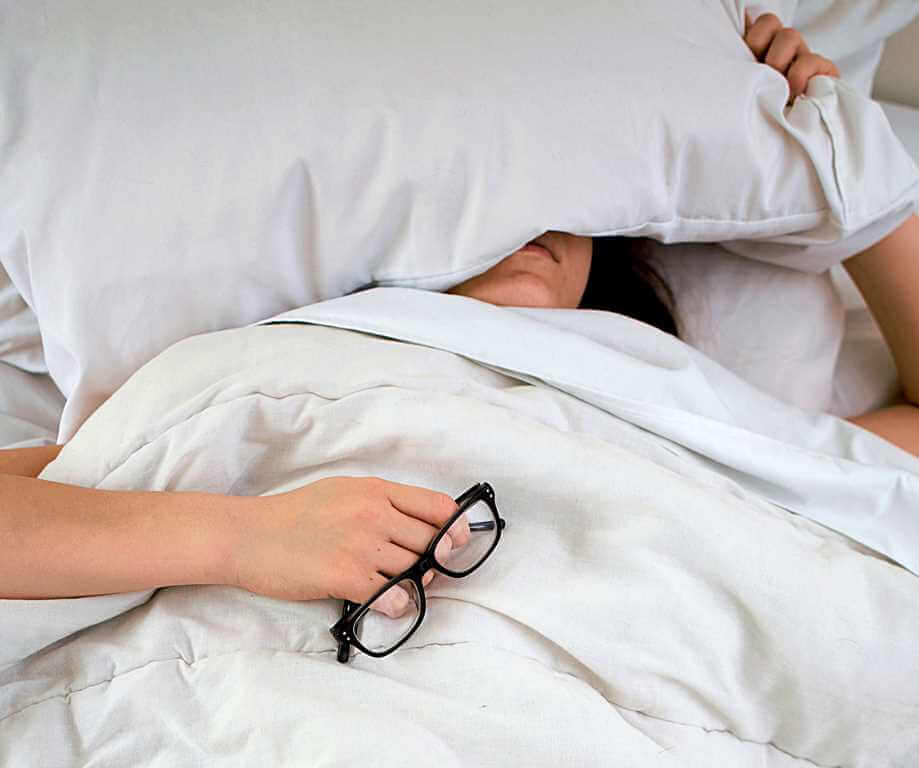- Blog
- News
- Sleep
- Snoring
Why Do People Snore? Uncovering the Common Causes of Snoring

Love it or hate it, snoring is a common occurrence among men and women. If you’ve ever wondered why some people snore and others don’t, this article will help shed light on those wheezing sounds we make in our sleep.
The underlying causes of snoring
From a physiological standpoint, snoring is the result of air passing though partially obstructed upper airways in the nose and throat, causing turbulence or a rumbling noise during sleep.
Although it’s perfectly normal for the muscles in the nose and throat to relax while you sleep, they sometimes slacken so that the airways become too narrow for air to come through the nose, or pass into the lungs.
The narrower the airways, the more forceful the airflow and the greater the likelihood that mouth breathing will cause snoring. The tissue in the nose, throat, tonsils, and mouth vibrate producing the hard sounds associated with snoring.
But why do some people snore louder and more frequently than others?
According to the Mayo Clinic, these physical conditions are known to contribute to snoring:
- Nasal obstruction – Chronic congestion caused by allergies and sinus infections, a deviated septum or simply narrow nasal passages may affect your ability to breathe freely through your nose and cause snoring.
A deviated septum occurs when the septum, or the thin piece of bone and cartilage that separates the nostrils, becomes crooked or dislocated, it can cause breathing problems during sleep. WebMD states that approximately 80% of all people suffer from a certain degree of misalignment of the septum. While some people are born with a deviated septum, others can get it through trauma and physical injury.
A common symptom of a deviated septum is nasal congestion that is worse in one side of the nose than the other, as well as breathing difficulties.
If you suffer from nasal obstruction, consider using a nasal dilator to improve breathing during sleep. Mute is a non-prescription, drug-free medical device that helps you breathe more, snore less, and sleep better at night. This nasal dilator also comes in a variety of sizes to help you find the perfect fit.
- Mouth anatomy – A low and thick soft palate contributes to narrowed airways. Moreover, when the palatine uvula, or the triangular piece of tissue that forms part of the soft palate, is elongated, airflow gets obstructed, creating more tissue vibration, which results in snoring.
Enlarged tonsils and adenoids, or the clumps of tissue on the right and left sides of the back of the throat and the back of the nose respectively, can also cause breathing problems.
Those who snore as a result of enlarged tonsils and adenoids may benefit from getting a tonsillectomy and/or adenoidectomy in an outpatient setting.
- Excessive fat in the neck area – Those carrying extra weight may have excessive weight pushing down on their throat which can narrow the airways.
If there is obstruction in either the nose or throat, for any of the reasons mentioned earlier, it’s common for people to open their mouth to breathe. Mouth breathing is strongly associated with snoring.
Risk factors for snoring
There are several factors that may contribute to snoring, such as:
- Gender – It is believed that twice as many men snore as women. However, women who snore are quicker to sustain heart damage, according to a study in the United Kingdom by Dr. Adrian Curta, head of cardiac imaging and radiology resident at Munich University Hospital.
- Weight – Being overweight makes you more likely to snore, since weight gain increases fat around the neck.
- Age – According to WebMD, 30% of men and women over the age of 30 snore. Dr. Rafael Pelayo, a sleep specialist at Stanford Sleep Medicine Center, believes that snoring worsens as we age because of decreased muscle tone in the throat.
Lifestyle habits that cause snoring
Your lifestyle can also contribute to your snoring. Be wary of the following:
- Taking alcohol or sedatives before bed – Alcohol, tranquilizers, and sleeping pills can cause increased muscle relaxation during sleep, making you more likely to snore. Natural alternatives like drinking herbal tea or taking a warm shower before going to bed can help induce drowsiness.
- Sleep position – Sleeping on your back can cause snoring, since the tongue and soft palate collapses into the back of the throat, partially blocking the upper airways. To lessen snoring, try sleeping on your side. You can also minimize snoring by elevating the neck and head with supportive pillows or an inclining mattress.
- Air moisture – Lack of moisture in the air can irritate the sinuses, causing nasal congestion. Bring a humidifier to the bedroom to help lubricate the airways while you sleep.
Pinpointing the cause of your snoring will make it easier to find a solution. Although surgery can help address the anatomical causes of snoring, you can also choose from a wide range of over-the-counter sleeping aids like nasal dilators and mouthpieces. Mute is an effective sleeping aid that opens up the airways while you sleep, helping you snore less. Visit our shop today to find comfortable solutions to snoring.
Making healthy changes to your lifestyle can also help reduce snoring.
References:
https://www.sleep.org/articles/why-people-snore/
https://www.helpguide.org/articles/sleep/snoring-tips-to-help-you-and-your-partner-sleep-better.htm
https://www.resmed.com/us/en/consumer/diagnosis-and-treatment/healthy-sleep/what-causes-snoring.html
http://www.dentalsleepapnea.com/factors-that-affect-snoring.html
https://pmj.bmj.com/content/80/940/116
https://www.webmd.com/allergies/deviated-septum#1
https://www.enthealth.org/be_ent_smart/treatment-options-for-adults-with-snoring/
https://www.mayoclinic.org/diseases-conditions/snoring/symptoms-causes/syc-20377694
https://www.sciencefocus.com/the-human-body/do-more-men-snore-than-women/
https://www.sleepfoundation.org/articles/debunking-sleep-myths-snoring-harmless
https://www.webmd.com/sleep-disorders/news/20181129/snoring-may-be-bigger-threat-to-women-than-men#1
https://press.rsna.org/timssnet/media/pressreleases/14_pr_target.cfm?ID=2055
https://www.webmd.com/women/features/does-snoring-have-you-up-all-night#1
https://furthermore.equinox.com/articles/2017/02/snoring
https://www.womansday.com/health-fitness/wellness/a51112/why-snoring-gets-worse-with-age/
